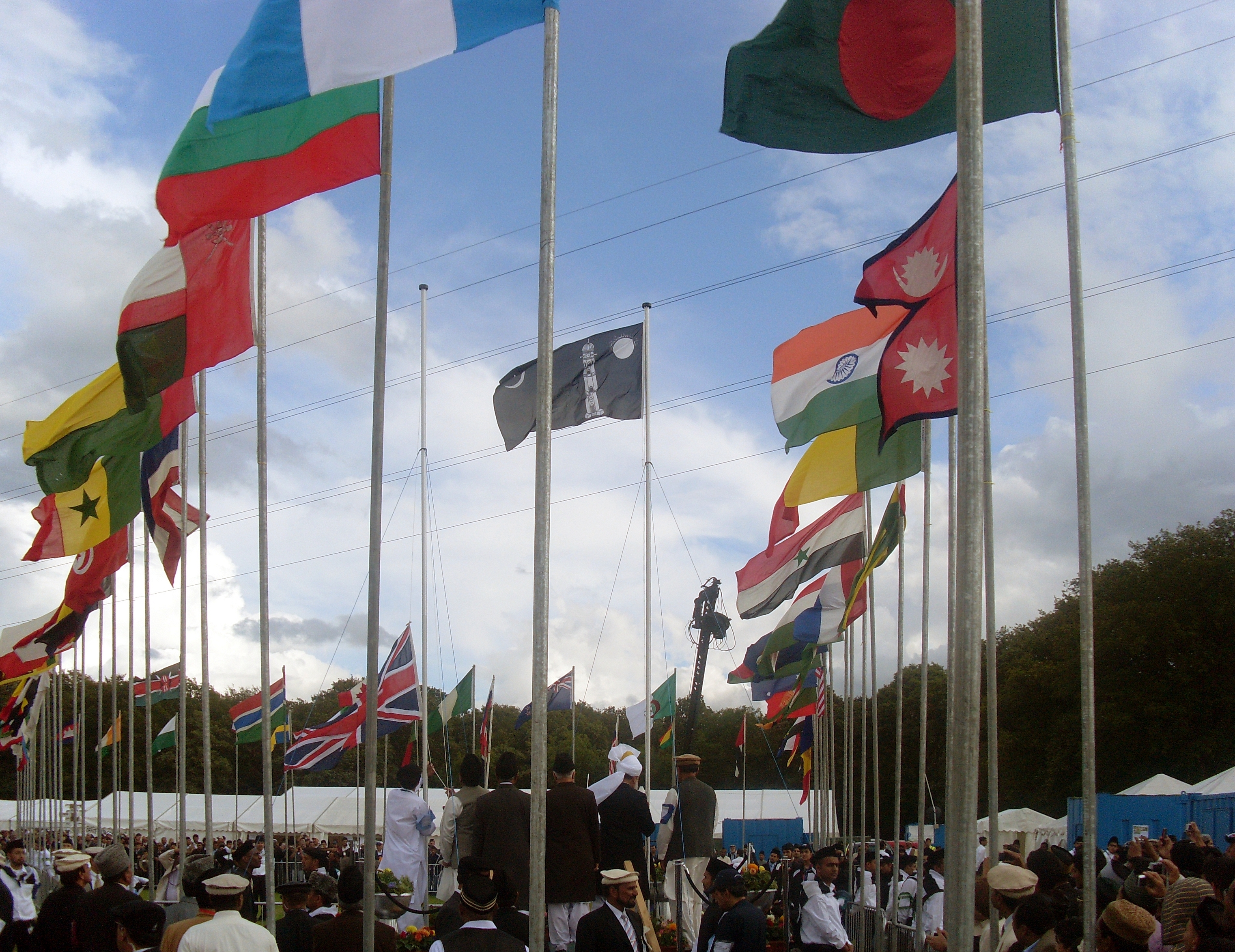Views expressed in opinion columns are the author’s own.
Why don’t Muslims get together and rally for peace? How can you tell me Muslims are not terrorists when the Islamic State group is the only one I see acting in the name of Islam? Where are the so-called peaceful Muslims? These are questions an average Muslim like me hears every day. When I wonder why some people have these questions about my faith, I wish that they were with me on three blessed August days in 2011.
As a 12-year-old child traveling to England for the first time, I could barely hold back my excitement. London has always been a traveler’s fascination, but for me the real thrill lay some 50 miles southwest of the capital, in a small community known as ‘Hadeeqatul Mahdi’ (previously called Oakland Farm). Though from the outside, this rural area appeared to be nothing like the hustle and bustle of London, a closer look revealed its unique vibrancy. The farmland was to be the setting of the three-day International Convention of the Ahmadiyya Muslim Community.
Driving down to the convention — which is known as the Jalsa Salana in Arabic — I had the whole map running through my head, despite having never attended before. Thanks to live coverage of the event via Muslim Television Ahmadiyya, I had always felt like I was part of this convention. As I walked into the convention area, the atmosphere was electrifying: happy kids running around as though they were at Disney World, Africans hugging Americans and Asians hugging Europeans like lost brothers who had finally found each other after years of separation.
I had never before seen hundreds of flags of different countries waving together to the same tune of love, unity and peace. Doctors, professor, engineers, lawyers and other professionals volunteered to cook food, clean dishes, help in construction, clean up after people and perform many other services. They received instructions from their superiors, many of whom worked at fast food chains or grocery stores in the real world. Here, caste, creed and social status seemed nonexistent.
More than 30,000 Muslims from around the globe were in attendance. They had gathered to show their support for the true and peaceful message of Islam. This convention was started in the humble town of Qadian, India, more than 100 years ago by a man named Mirza Ghulam Ahmad. He claimed to be the latter-day Promised Messiah as foretold by earlier scriptures and prophets. His goal was strengthening bonds of brotherhood among members of all faiths and showing the world the peaceful message of Islam.
Today, this convention is replicated around the world: The Ahmadiyya Muslim Community is established in more than 200 countries, including the United States. These conventions serve as a firm rebuttal to terrorist organizations like the Islamic State group, and to people who claim Muslims don’t do enough to display the true image of Islam.
Years later, as I got older and reality became clearer, my perspective of life as a fairy tale began to be replaced with a view of a world filled with discrimination and hate. As a child, I thought truth sells because people are attracted to it. I thought the media presents unbiased stories, free of any delusions and lies. My naive reasoning was simple: Why would the media lie to us?
With time, I realized truth did not necessarily attract people, and that the media showed only the side of the story that sold the most. This realization has become clearer over the last few years, as Islamophobia has risen steeply. Why wouldn’t it? All the media chooses to show are people pledging allegiance to the Islamic State group caliphate. But it refuses to give any significant coverage to the pledge of allegiance that tens of thousands will take at the hand of a peaceful caliphate Friday through Sunday, when the convention will take place again in the U.K.
Although I will not be physically present at this year’s convention, I will very much feel part of it thanks to the coverage on television. I believe that if the media and average citizens start educating themselves about Islam by attending conventions like these, a very beautiful and peaceful society will shortly come into existence.
Zafir Ahmed is a sophomore public health major. He can be reached at zafirahmedmalik@gmail.com



